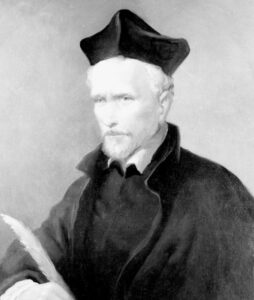
An unseen danger
|
Getting your Trinity Audio player ready...
|
Eventually, the entire right must have been happy with the arrival of Javier Milei to the Argentine presidency. Without a doubt, the arrival of the “chascón” will mean a great change in years of Peronist decadence beyond the Andes, a balm, almost ambrosia, even because its mere encounter with the Casa Rosada implies possible transformations in the mentality of the Argentine citizen, especially, in those young generations who have had to live through years of leftist misery, but who show how politicians are always eager to tax them financially in the not-so-distant future to continue maintaining a system that is financially impossible to sustain without some kind of debt that, of course , has those typical overtones of “intergenerational solidarity”, that is, for the benefit of some currently, but for which others pay later.
The enthusiasm for his installation in power has been such that not a few have been radiant about it, which is fueled by the opinions of international agencies that detail the success that awaits the macroeconomic measures of the “wig.” All in all, I would like to put some cold shoulder to the “Milei” phenomenon, not only in Chile, but throughout Latin America. Especially because what, at first glance, may pass as a notable example of political praxis, can also be theoretically misinterpreted and cause unintended consequences. Perhaps criticism is not welcome, in times of full joy, but yes, I fear, apprehensions must necessarily be listened to, especially if it involves political effects.
In what follows, I will try to illustrate that there are three great reasons to fear a new theoretical debacle or intellectual split in our sector. On the one hand, the theoretical disputes between conservatives, liberals and nationalists, sectors that claim to reside in our trench, have not ended. This leads me to think that there are still spaces for discussion that, if not resolved or, at least, not maintained in an armistice, can destroy the necessary support for the candidacies that the new right intends to bring to the spaces of power. On the other hand, the possible success of the current Argentine government may fuel the feeling that the countercultural response to the post-Marxist left is one of libertarian overtones, and only exclusively libertarian, further separating the sector. Finally, there is still no effectively established project for the new right. There may be glimpses, attempts, but they are still babbling, and this does not allow us to be on the right footing for the times that lie ahead.
On the one hand, I must begin by alluding to the fact that some time ago I had realized that, despite all the political disasters that have been experienced in different parts of Latin America due to the arrival of the left to power, there are still some representatives and spokespersons of the “new right” busy continuing to discuss theoretical trifles instead of making the leap towards a more comprehensive vision of the right. Despite notable examples such as Jordan Peterson, a Canadian psychologist, who has always focused on attacking the root of postmodern problems: the maps of meaninglessness that the left has installed in the minds of thousands of people, which has destroyed our ability to to face the world, to find our place in it, making ourselves believe that we are weaker than we really are; Others take pleasure in theoretical discussions in which, most of the time, they show fallacies or theoretical misrepresentations that are convenient for their arguments against some of the traditions of the right, on which, by the way, they take advantage of blaming all the evils. that afflict us as a sector. To give just one example, we have the thinker, Miklos Lukacs.
The Peruvian, following the same path as the famous British philosopher Roger Scruton, sees liberalism as the problem of any possible right-wing response to Western decadence. His political position, based on a new political project, baptized as bioconservatism, attempts to rescue the basic principles of classical conservatism, but also assuming the need to propose that everything starts from an anthropological vision totally removed from the current postmodern dispositions, which include to a subject freed from the moorings of reality, a typically modern Kantian abstract individual, but taken to paroxysm today. However, Miklos assumes that liberalism is also part of this anthropologically flawed vision. Liberal positions, he will say in a presentation that has already reached more than 76 thousand views, are revolutionary, and that means refoundational.
Furthermore, he will argue that liberal ideas would start from rationalist notions, which seek to redesign society under the aegis of human perfectibility, without taking into account the parameters that reality has. In short, his position does not take into account the evident differences between the classical liberal and the French egalitarian trends, assuming liberalism as a univocal political ideology, alien to nature (1) and tradition (2).
Of course, Lukacs's entire approach to liberalism is a mistake. Not taking into account the historical differences around the different traditions that claim to be liberal may be comfortable, from an argumentative point of view, but it is not intellectually honest. And beyond the simplification involved in talking about liberalism in these terms, risking making a hasty generalization, the truth is that “friendly fire” does not help. I am far from thinking that we can reach agreements when we start from “straw monkeys” that do not adjust to theoretical reality. Unlike what the Foundation for Progress (FPP) has done, an institution that has published books by conservatives or even by thinkers who call themselves “center”(3), alleging this classical liberal domicile, many conservatives do not agree. They have allowed us to build bridges.
Something similar happens with nationalist groups that, if it were not for the fraternal dialogue that I have had with Jorge Sánchez, author of the renowned book “Ideological Warfare” (2023) – who allowed me to preface the third edition of his book –, I would not believe these either. willing to build ties. At the presentation of his book I had the opportunity to talk very sincerely and deeply with several who called themselves nationalists, and many of them recognized that liberalism, at least in its economic aspect, was right. Isn't that, perhaps, trying to understand each other? (4) On the other hand, I fear that there may be, as a result of Milei's eventual economic success in Argentina, a propensity to believe that the answer to the cultural decline of the West is libertarianism or liberalism. And we have been able to notice this in different interviews in which Axel Kaiser, the highest representative of liberalism in Chile, has defended, tooth and nail, Milei's option. On July 7, 2023, the Argentine candidate, at the time, came to our country, and they had a pleasant conversation amidst thunderous applause about the situation in both countries.
The gathering was titled “The Liberal Renaissance”(5). The concept used is striking: Was liberalism ever dead? In fact, in recent years it has been highly questioned, as we already mentioned, both by the left and by nationalists and conservatives, who protest the libertarian hegemony that would have been installed in the sector, after the fall of the Berlin Wall (6 ). In any case, dead or not, liberalism seems to be the problem for many, but also the only solution, for others. Although Kaiser has always been one of the most sensible intellectuals, it seems that when he talks about Milei, he places all his trust in him. In an interview with El Líbero, he stated, accurately, that the election of the Argentine president would modify the way of doing politics in Chile, especially for a center-right that would not understand the meaning of the arrival of the economist to the Argentine presidency. But, he also recommended that the candidates follow that line that he illustrates, a little harder and, by the way, more “pure”, from the liberal point of view (7).
The same spirit is noted regarding how Milei became president in an interview with journalist Cristián Warnken. He stressed that the Argentine president reaches the presidential chair without compromising any of his ideas, and that the defense of freedom must become “dogmatic”(8). It seems that Kaiser is very enthusiastic about the management of the Argentine president, and shows the same confidence that the lawyer Nicolás Márquez embraces in said administration, who is already preparing to publish a book about the "wig", without even having passed a year of his government. Milei's would be the most complete representation of the libertarian response to leftist decadence. Even in circles like the FPP, there has been talk of “libertarian rebellion”(9) in the context of the impact that Milei can have in Latin America.
I have no doubt that the situation in Argentina merited a more convincing defense of a liberal narrative, especially taking into account that the main problem in that country is poverty (10). However, it seems clear that the enthusiasm for Milei can provoke a mistaken appreciation that it is the liberal or libertarian narrative that is the only one that can defeat the forces of global leftism. I tend to think that this is precisely a latent problem, especially because it is precisely within the liberal framework that has been played out all this time of Western decline. Beyond being a defender of classical liberalism, I believe that the urgency of the facts calls us to create an option that truly seeks the political convergence of different traditions within the same trench, understanding that the enemy is more powerful than we have My dear.
The left has been propagating its ideology for years, on various cultural platforms (11), just as its proposal has been worked on for a long time (12): Western culture is permeated by ignorance, weakness, statism and vulgarity, but, at the time , liberalism did nothing against it. Slowly, but profoundly, the left was inserted into schools, television channels, universities, the press, and liberalism only proposed modernization and economic growth.
Axel Kaiser himself denounced the technocratic ignorance that the right wing displayed (13) and although the Argentine president is brilliant, that does not mean that he may promote policies that leave other traditions out of the game, at a time when support is needed. unconditional transversal in the face of the advance of the left. His proposal is right-wing, there is no doubt, but, I would dare to say, it is more libertarian than right-wing, and classical liberalism itself teaches us that politicians are not emissaries of power away from wrong passions and errors are not forced. The last episode in which Milei arouses the resentment of Chileans and Britons by bringing up the Antarctic theme again (14) should attract the attention of Axel and all the others who admire him as Queen Dido admired Aeneas. It's not going to be that they all end up on the pyre like her, disappointed.
Finally, I must point out that the non-existence of a specific project is evident
for the new right, neither in Chile, nor anywhere. What has existed on the part of
All of us who have tried to think of this right that must confront, perhaps, the worst adversity in its history, with a powerful enemy that occupies all the spaces of dissemination, have been isolated attacks, pertinent analyses, but until now innocuous. Without a doubt, if anything, we have made progress. The diagnosis is clear. Agustín Laje has pointed it out clearly: we are immersed in a cultural battle and his description, needless to say, is very complete and remarkable(15).
However, I allow myself to pose Lenin's question: What to do? The details of the consistent praxis that the right must carry out are there, still in battlements. Should we follow, perhaps, the libertarian path, defend the principles of a liberal order(16), and insist on the same political criteria that allowed the expansion of the cultural hegemony of the left, although better studied and understood? Perhaps the American conservative path of Russell Kirk(17) is preferable, or British conservatism(18)? Nor do Aleksandr Dugin's approaches seem like a sensible option, although, nobility obliges, he does seem to be clear about what to do, although he does not follow a path that amalgamates the traditions of the right, but rather surpasses them, overlaps with them, completely (19 ). In Chile, regarding this issue, we are in its infancy. No one has proposed a path for the right that is not the path of its own fold, or, at least, I have not heard that such a proposal exists, mea culpa.
There are great Chilean exponents in the cultural battle, from the most profound intellectuals, to the most seasoned communicators and the most rebellious platforms (20); However, I do not see a clear project, although there are commendable efforts to have it(21). However, the mere nonexistence of said project makes the possible success of the Argentine government seen as an illustrative example of the libertarian ideology that we must follow and, although electorally important, I am not sure that, ideologically speaking, this path allows us to be fully aware of the bridges that must be built around the diversity of traditions that coexist on the right. Time will tell if Argentina becomes, with the help of Milei, a unifying project for our sector.
In conclusion, these are dangerous times. We continue within the cultural orbit of the left, trying to fight for a response that is sufficient and necessary to counteract its advance. The arrival of Javier Milei's government, after the fall of Trump in the United States and that of Bolsonaro in Brazil, has been a balm for a right that seemed to return to the darkness of the cave in which the arrival of governments of left throughout the world, especially in Latin America. However, if the cards are not played well, the idea may arise that libertarianism or liberalism is the key to turning the tables, due to the political domicile in which Milei lives. Clearly, stating that would be a mistake, which we can prevent if we build the necessary bridges for the configuration of a serious project that encompasses and brings together all the traditions of the right. As the renowned national philosopher, Andrés Bello, would say, all truths – and even more so should those of the right – come to light in the ocean of the Universe.
1.See Peterson, J. (2020) Maps of meaning: The architecture of belief. Ariel
2.https://www.youtube.com/watch?v=KMHvdOTvr0g&ab_channel=Miklos Lukacs.
3.See Scruton, R. (2010) The benefits of pessimism and the danger of false hope. FPP; and Scruton, R. (2019) Crazy people, impostors and agitators. Thinkers of the new left, FPP. Also Haidt &Lukianoff (2018) Spoiling America's Young People. FPP.
4. You can see the launch of the third edition of Jorge's book at https://youtu.be/7Ipj7nKaxeM?si=oig66lkQgEzUq1Nh
5 The conversation can be seen at https://www.youtube.com/watchv=b_salwW9eFU&ab_channel=Fundaci%C3%B3nparaelProgreso
6.See Mansuy (2016), who suggests that Jaime Guzmán has an evident liberal inclination and that this, exclusively, is what has manifested itself in the political order since the 1980s, especially in the figure of a Subsidiary State. passive.
7.https://ellibero.cl/actualidad/axel-kaiser-el-triunfo-de-milei-perjudica-la-forma-de-hacer-politica-de-chile-vamos-pero-beneficia-a-kast- y-matthei/ 8.https://www.youtube.com/watch v=csyBBtOyUQg&ab_channel=PAUTA
9.https://www.youtube.com/watch?v=eUQck2mB0rY&t=305s&ab_channel=Fundaci%C3%B3n para el Progreso.
10.Since 2017, Argentina has been increasing poverty, reaching 42% of the population in 2020. See World Bank data on the subject at https://data.worldbank.org/indicator/SI.POV.NAHC?locations=AR
11.Laje, A. (2023) The black book of the new left. Between Foxes and Hedgehogs.
12.Iturralde (2021) The beginning of the new left and the Frankfurt School. Unión Editorial SA
13.Kaiser (2014) Fatal ignorance. FPP.
14.https://www.latercera.com/mundo/noticia/milei-dice-que-construccion-de-base-en-ushuaia-junto-a-estados-unidos-nos-avala-el-reclamo-sobre-la-antartica/SAI76GVKQNCW7KIHUGKYWGDXBM/
15.Laje, A. (2022) The cultural battle. Critical reflections for a new right. HarperCollins.
16.Rallo, JR (2019) The 10 basic principles of the liberal political order. Deusto.
17.Kirk, R. (2001). The conservative mind. Regnery Gateway
18.Scruton, R. (2018) How to be conservative. Homo Legens.
19.Duguin, A. (2013) Fourth political theory. New Republic.
20.There are too many to name them all, but I have always appreciated the influence that fellow nationals such as Axel and Vanessa Kaiser, Juan Cristóbal Demian, Andrés Barrientos, Juan Lagos, Benjamín Ugalde, Sergio Melnick (RIP), Henry Boys, have had on my thinking. Arturo Ruiz and Professor Cristian Mancilla. In the area of communications we clearly have Johannes Kaiser, Teresa Marinovic, Claudia Ormeño, Un Chileno Anónimo, Álvaro Ramírez, Viviana from “Vivianamente speaking”, and what can we say about the commendable work of new publishers such as Legado Ediciones, Entre Zorros and Hedgehogs, Editorial
21.Conservadora, or from bookstores like Chema and platforms like Revista Individuo, Stakeholderz, Arca News, GOT Producciones and others. Everyone is grateful for the great work done.(21) For my part, I believe I am developing a project, although it is still in formation and, despite how sure I feel about the path chosen, I am not sure that it is either. the completely correct one. The first part of this project would be described as the return to history based on our national authors - each country has its own - to understand the political concepts that unify the proposal of the right and, thus, create the historical awareness necessary to face the challenge of the cultural battle or war. “Right Profiles” (2023) would be the first outline of this campaign. I allow myself to let time and the people decide if this project makes sense.







